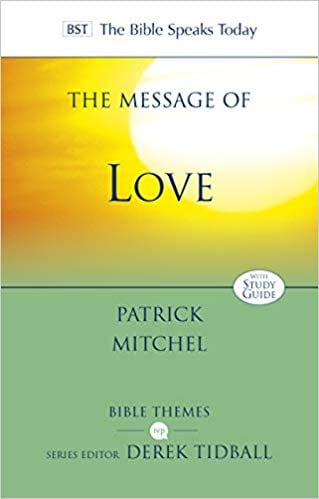BEN: Thanks for the good exposition on the Song of Songs. You are so right that the later Christian allegorizing of the text, spurred on by an ascetic and non-Jewish approach to sexual love, has done that text no justice. It reminds me of the advice we got in junior high at church in regard to the raging hormones, which amounted to this oxymoron: ‘sex is dirty, save it for the one you really love’. Your book does one of the best jobs I’ve seen in striking the right balance between emphasizing the goodness of human sexuality and its expression, and at the same time emphasizing the right contexts in which that should happen without violating God’s demand for our holiness, and love of neighbor in the proper way. Comments?
PATRICK: I enjoyed writing every chapter in the book but this one was one of my favorites. The poetry is beautiful as is its vision of human erotic love. The text uses ancient imagery, yet it speaks right into our world in its depiction of a joyful sexual relationship of mutual desire and respect between the two lovers. As you note I’m not persuaded by later allegorizing of the text within both Jewish and Christian traditions. One reason for allegory is that the Church has had enormous problems with affirming the goodness of the body and of sex. Whereas the Songs rejoice in the touch, sound, scent and taste of another’s body without a hint of shame, from the early church fathers onwards sex and sexual desire have been inextricably connected with sin and failure to live up God’s higher calling of celibacy. You know something has gone deeply awry when comparing Augustine’s description of the first sex-scene between Adam and Eve in The City of God (free of lust, in command of the will, without passion and with calmness of mind, and with no corruption of the body, Adam lies upon the bosom of his wife!) with the uninhibited passion of the Songs.
I trace this in more detail in the book, save to say that today things have switched around dramatically. Within a hyper-sexualized culture, now the Church has a very difficult job articulating why on earth sex should be limited to marriage between a man and a woman. It seems to be a repressive ideology both to the unmarried and to those who are not heterosexual. In contrast to the church fathers, the idea of celibacy has become inconceivable nonsense within Western culture – and is an embarrassment within much of the Church. We face the challenge of affirming sex and the body as good gifts of God – Christian spirituality is not some sort of gnostic escape from the body with its tainted desires. Rather, sex is to be used within an exclusive relationship of monogamous marital love. Yet we also have much work to do to recover a theology of celibacy and singleness (I talk more singleness and a theology of the family in chapter 10 on Jesus’ teaching on discipleship love).













